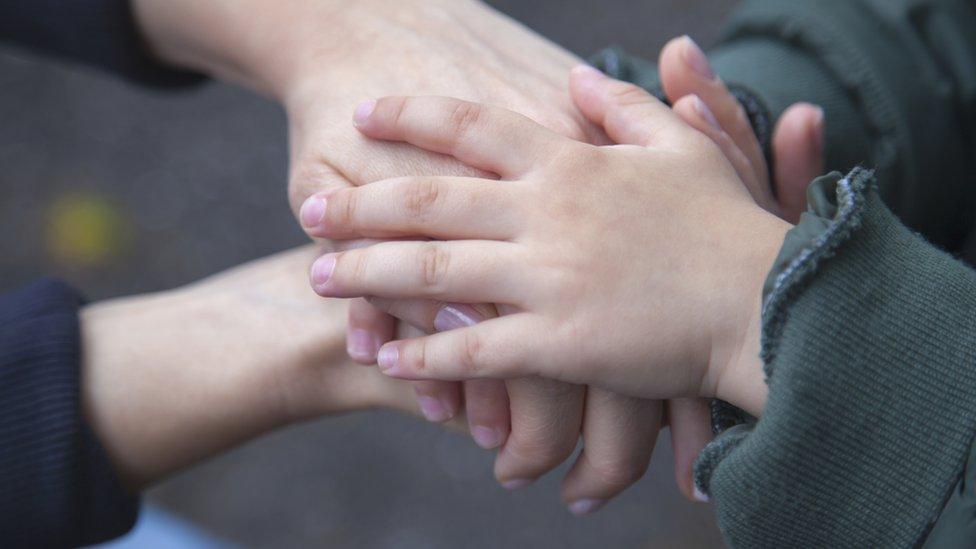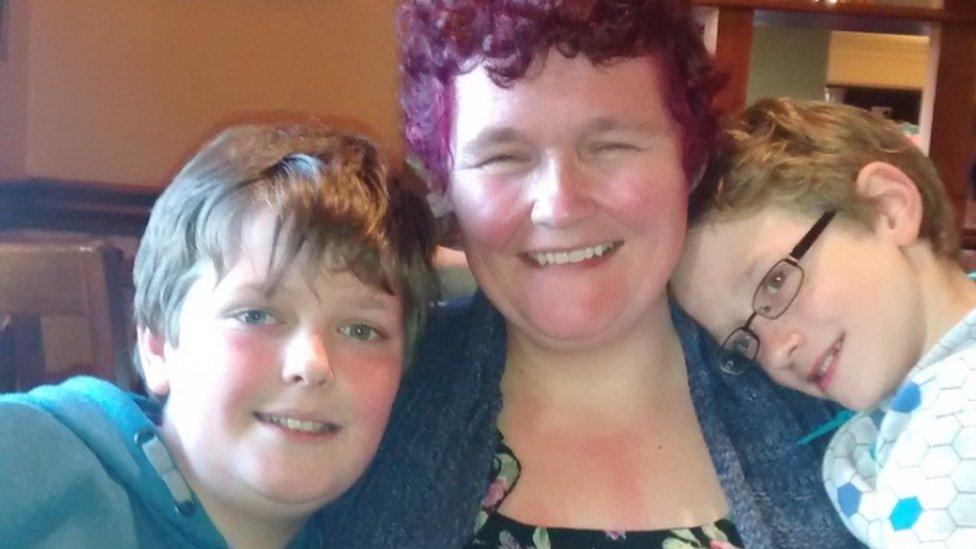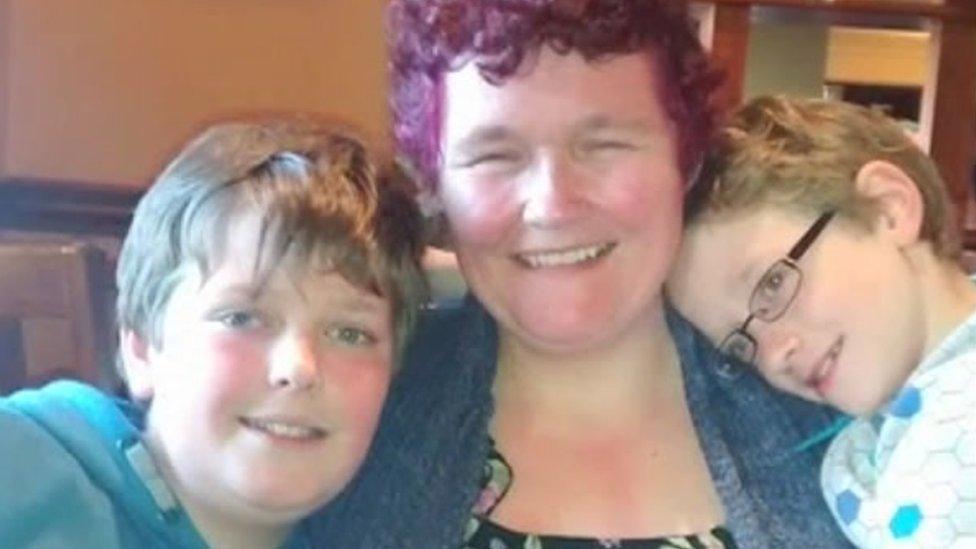Family court changes to protect children 'lifesaving'
- Published

A review of the guidance in cases involving domestic abuse was carried out by Mr Justice Cobb
New family court guidance to protect children from violent parents during custody disputes is "lifesaving", domestic violence campaigners say.
The changes, which ask judges to consider whether the presumption that both parents should be granted access applies, will be introduced on Monday.
Women's Aid said judges should have compulsory training.
The Ministry of Justice said it was determined to improve the treatment of abuse victims in the justice system.
The changes will apply in England and Wales.
Women's Aid says 20 children have been killed by a parent who was also a known perpetrator of domestic abuse. The majority of these cases followed a court order meaning the children had to have contact visits or even live with an abusive parent.
In family courts, judges are supposed to follow guidance, known as Practice Direction 12J, when handling cases in which domestic violence is cited as an issue.
Following the Child First campaign by the charity, launched on the Victoria Derbyshire programme in January last year, Mr Justice Cobb carried out a review of the guidance, which resulted in some amendments.

'No-one should have their child die in their arms'

Claire with her sons, Jack and Paul.
Claire Throssell's sons Jack and Paul were killed by her former partner in a house fire in October 2014 on a weekend access visit. She launched the Child First campaign on the Victoria Derbyshire programme in January 2016.
"A policeman was stood on the doorstep and I knew by his face, and I said, 'What's he done?'"
She said she had warned social services and Cafcass, the body that represents children in family courts, that the boys could be at risk.
"They didn't want to see him," she said.
"I went to Sheffield Children's Hospital and there was Paul, having CPR done, and they said, 'There's nothing more we can do now.'
"And as I held him in my arms I promised him that no other parent would have to go through this. And no other parent should have to hold their child in their arms while they die, knowing it was at the hands of someone who should love and protect them.
"It's so hard for people to get out of their situation, but this is the start of the hope, and this is the start of the journey and for things to change for all the children.
"It's too late for my two, but their voices are finally being heard. Jack was never interviewed - the day he was supposed to be interviewed by Cafcass was the day he fell asleep in my arms, and that must never happen again.
"No 12-year-old should have to say to a fireman, or a policeman, or a doctor, 'My dad did this and he did it on purpose.'"

A key aspect of the guidance is asking judges to consider whether the presumption that there should be "contact at all costs" with both parents applies.
This includes domestic violence cases, where involvement of a parent in a child's life would place the child or other parent at risk of harm.
BBC legal affairs correspondent Clive Coleman said the guidance's language had been considerably beefed up, instructing judges what they were required to do rather than should do, to focus their attention on the risk of harm.
He said there had been a feeling the pendulum in family courts had swung too far in favour of the presumption that it was in the best interest of the child to have contact with both parents.
The effectiveness of the guidance would depend on ensuring judges were really well trained and took it on board fully, our correspondent added.
'Devastating impact'
Katie Ghose, chief executive of Women's Aid, said the "vital, lifesaving changes" would make judges more accountable when making child contact decisions.
"We want to see children's safety at the heart of all decisions made by the family courts and this cannot be done without a thorough understanding of domestic abuse, including coercive control, and the devastating impact it has on children," she said.
"We call for judges and magistrates to be provided with compulsory training to make sure that they follow the guidance properly and get child contact decisions right every time."
The Ministry of Justice said: "We are determined to improve the treatment of domestic abuse victims in the family justice system.
"We therefore welcome this revised practice direction, which will help ensure the family courts take full account of the harm that can result from domestic abuse."
Watch the Victoria Derbyshire programme on weekdays between 09:00 and 11:00 on BBC Two and the BBC News Channel.
- Published23 February 2017

- Published24 January 2017

- Published24 March 2017
